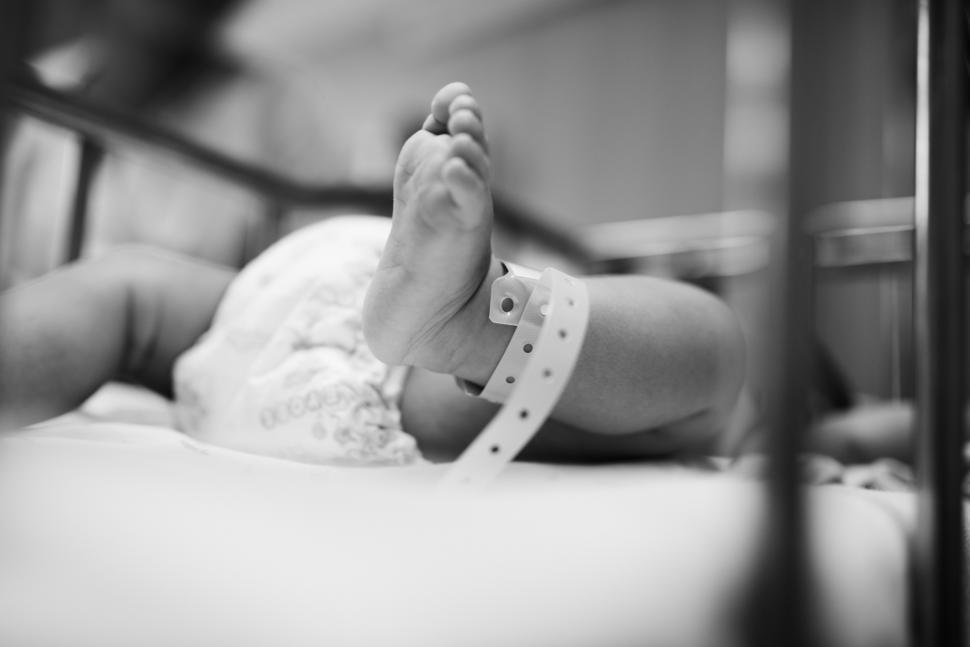ARTICLE
The cost of little pink feet
Deciding to have a baby is by far the biggest decision you’ll ever make.
It’s so exciting and a little terrifying all at the same time. If you fall pregnant
without planning it, you’re in for the ride of your life, but it’ll be the most rewarding thing you ever do….
I fell pregnant with my first child before we knew the financial aspects of it all, but luckily I was already on medical aid, even if it didn’t cover all the costs.
For this article, let’s assume you’re thinking about starting a family and you don’t have medical aid. These are your options:
1. Wait in queues of sick people for hours at public clinics for your pre-natal checks, and then you won’t necessarily be seen by a trained or experienced medical professional like a gynecologist.
2. The chances of finding a free clinic near you with a sonar to check on your baby’s progress are slim. Even if you do the equipment might be too outdated for accurate measurements or out of order due to lack of maintenance.
3. Should something go wrong during your pregnancy, and you must rush to a public hospital, the emergency room/department is usually overflowing and understaffed.
4. If you’re lucky enough to have a healthy pregnancy and get to a public hospital in time for the birth, be it normal or caesar- ean, you’re not guaranteed to get the care you were hoping for during this
momentous occasion.
If you ‘re hoping to start a family and you can’t afford medical aid, there are so many kinds of medical insurance options out there.

I’ve spoken to numerous consultants and enquired with various medical insurance companies online, not to mention all the ones that blew up my Facebook page (including those that claim to cover children without an adult dependent). Their waiting periods are very similar to medical aid options and, based on the more affordable types, here are your options:
1. If you have been on medical aid for more than a year consecutively, without more than three month’s break, and you switch over to a medical insurance plan, then you will qualify for maternity benefits. You will also receive a set amount for the birth, as per your chosen option, but will it be enough?
2. If you are not currently on medical aid and you apply for medical insurance, you must be an active member for a full year (yes, 12 uninterrupted months) before you qualify for any maternity benefits, i.e. pre-natal checks etc.
3. If you are already pregnant when you apply for medical insurance, you still won’t qualify for any maternity benefits and the birth won’t be covered either. The great news, however, will be that your baby will be covered from birth, i.e. should there be any complications after birth or should a minor case of jaundice arise, your baby will be covered for the insured amount in case he/she has to be hospitalised.
It is also very important to take into consideration that the more affordable options of medical insurance don’t always include maternity benefits, not to mention optometry and dental benefits.
They also have limits to the amounts available per member, per claim. Should you want better cover and more benefits, you will have to choose a more expensive option, and then it can work out the same, or even more, than some medical aid premiums.
Which brings me to all the different kinds of medical aid options out there… I know how costly proper medical aid is, and that our current economy doesn’t make it easy to afford, but I’ve done the research and medical aid is worth it!
While I can’t disclose specific medical aid or insurance company details, or what their monthly premiums are, nor can I say exactly how much they’ll pay out, I can share that the average cost for a vaginal delivery at South Africa’s most widespread private hospitals, is approximately R22,185. This covers a two-day hospital stay, including nursing care, theatre time, ward fees, and other consumables. However, it doesn’t even cover doctor fees, anaesthetist charges, pathology tests, or take-home medication.
C-sections cost even more, and in the event of emergencies, serious complications or premature births, you’re looking at hundreds of thousands of rands in medical bills. That is why we highly recommend that you get medical aid cover at least a year before starting a family – even if it is just a comprehensive hospital plan that covers some pre-natal checks and has a bit of savings that can be used for medicine at pharmacies, but don’t stop there.
Choosing an affordable hospital plan “just in case” is wise, but the options offered by medical insurance companies are very limited. You’ll have to look into medical aid hospital plans that include maternity benefits like prenatal and postnatal consultations as well. Just be warned, when they say they cover “100% of the scheme benefit”, it doesn’t mean that the specialists and private hospital costs will be covered.
The said specialists often charge more than the medical aid limits, so you should
consider getting gap cover as well.
In short – the medical aid/insurance options with the most benefits and likelihood of covering all your medical bills are almost definitely not affordable for the average family in South Africa. If you can afford a good hospital plan and gap cover that’ll cover everything the hospital plan doesn’t, you will sleep much sounder at night.


